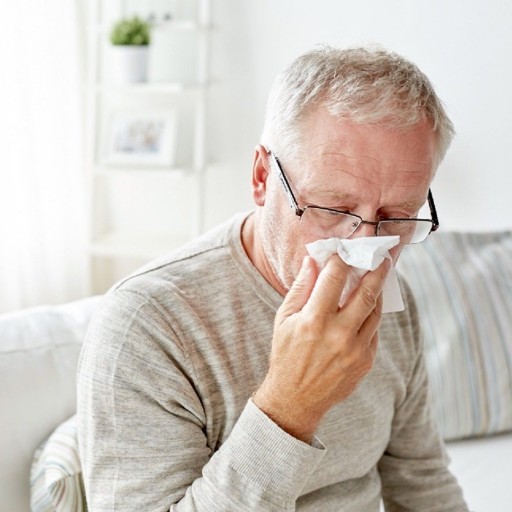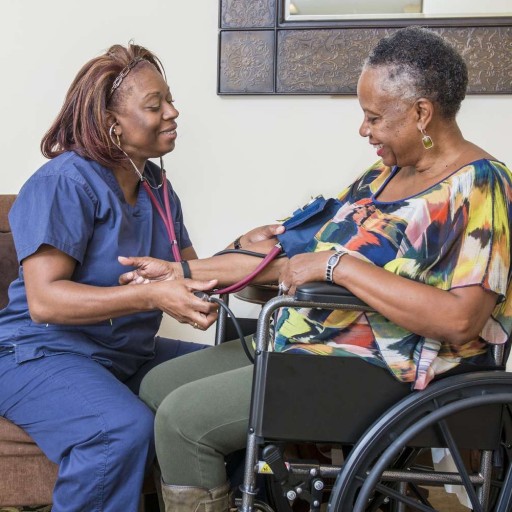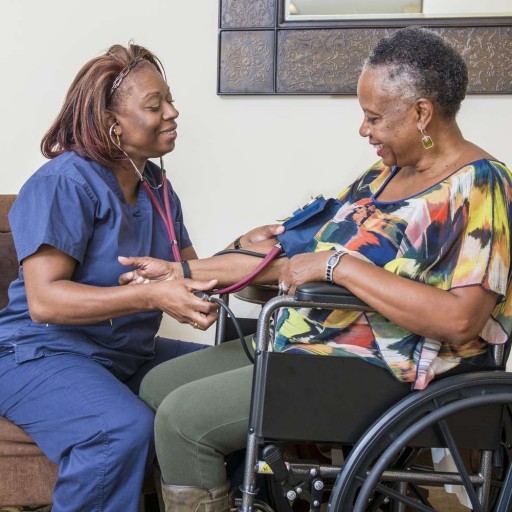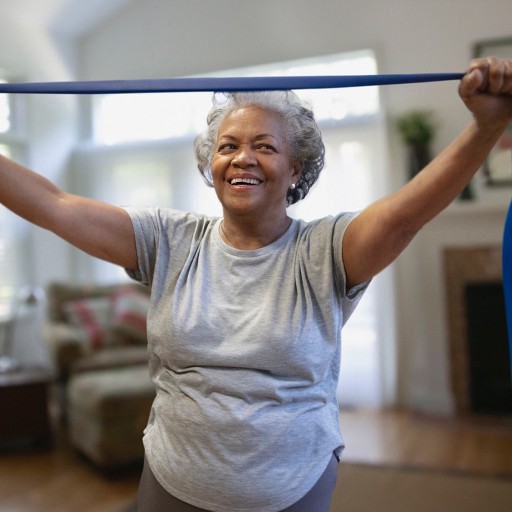Guardianship of the immune system in the elderly
With age, the physical functions of the elderly gradually deteriorate and they are vulnerable to various diseases. Common diseases in the elderly include cardiovascular diseases, diabetes, osteoporosis, respiratory diseases, and so on.
However, taking appropriate preventive measures can effectively reduce the risk of these diseases and improve the quality of life of the elderly.
I. Maintaining a Healthy Lifestyle
Good work and rest habits
Elderly people should maintain a regular work and rest schedule and ensure 7-8 hours of quality sleep every night. Adequate sleep helps the body repair and maintain the immune system, reducing the risk of infection and disease. The sleeping environment also needs to be kept quiet and comfortable to avoid overwork and mental stress.
Quit Smoking and Limit Alcohol
Smoking is a major cause of many diseases, including heart disease, lung cancer and chronic obstructive pulmonary disease. Quitting smoking can significantly reduce the chances of these diseases.
Similarly, excessive alcohol consumption can cause damage to the liver and cardiovascular system, so older people should control the amount of alcohol they drink and maintain healthy drinking habits.
Maintain good mental health
Mental health is particularly important for older people. Older people often face psychological problems such as loneliness, anxiety and depression, and long-term negative emotions may exacerbate physical illnesses.
Through social activities, hobbies and voluntary services, older people can maintain a positive mindset and reduce the risk of psychological problems.

II. Scientific diet and nutrition
Balanced nutritional intake
As the metabolism of the elderly gradually slows down, they need a reasonable intake of protein, vitamins, minerals and fiber in their diet. It is recommended to consume more fresh vegetables, fruits, fish and nuts to maintain cardiovascular health. Meanwhile, control the intake of salt and fat to reduce the risk of high blood pressure and high cholesterol.
Consume Calcium and Vitamin D
Osteoporosis is one of the common diseases among the elderly, especially women. Therefore, it is important to make sure you get enough calcium and vitamin D every day.
Older adults can supplement their calcium through dairy products, soy products, and green leafy vegetables, while sunlight is a good source of vitamin D. Bone health can also be maintained through calcium tablets or vitamin D supplements.
Maintain moderate water intake
As we age, older adults may feel less thirsty, but the body still needs enough water to maintain metabolism and internal balance. Consuming at least 1.5-2 liters of water a day can help prevent constipation, urinary tract infections, and other health problems associated with dehydration.

III. Regular Physical Examination and Disease Surveillance
Regular Blood Pressure and Blood Sugar Checks
Hypertension and diabetes mellitus are common chronic diseases among the elderly. Through regular medical check-ups, older people can detect abnormalities in blood pressure and blood sugar and take early treatment measures.
It is recommended to have a comprehensive physical examination at least once a year, especially for vital organs such as heart, liver and kidney.
Screening for osteoporosis prevention
Elderly people should undergo regular bone density tests to prevent and control the development of osteoporosis. Early detection of the risk of bone density loss can prevent fractures by modifying diet, increasing exercise or taking medication.
Early screening for cancer
Many cancers (e.g. lung, bowel and breast) have no obvious symptoms in the early stages and older people should have regular cancer screening. Early detection of cancer not only improves the success rate of treatment, but also reduces the side effects and pain caused by treatment.

IV. Reasonable Exercise and Exercise
Moderate aerobic exercise
Elderly people can carry out moderate aerobic exercise according to their own physical conditions, such as walking, swimming and cycling. At least 150 minutes of moderate-intensity exercise per week can help enhance cardiopulmonary function and reduce the risk of cardiovascular disease.
Strength Training and Flexibility Exercise
Strength training can help older adults maintain muscle mass and bone density, reducing the incidence of osteoporosis and muscle atrophy.
Simple dumbbell training or body weight training, such as deep squats and push-ups, can effectively enhance the strength of older adults. In addition, proper flexibility exercises such as stretching or yoga can help maintain joint mobility and prevent falls.
Balance and coordination training
Elderly people are prone to falls, which can lead to serious consequences such as fractures. Through balance training such as tai chi or simple standing balance exercises, older adults can improve their body coordination and reduce the risk of falls.

V. Prevention of infectious diseases
Vaccination
With the decline of immunity, the elderly are more vulnerable to infectious diseases, such as influenza and pneumonia. Therefore, preventive vaccines such as influenza vaccine and pneumonia vaccine are effective measures for the elderly to reduce the risk of infection.
Maintain personal hygiene
Good hygiene practices can effectively prevent infections. Elderly people should wash their hands frequently, keep the environment clean and avoid contact with infectious disease patients. At the same time, avoid staying for a long time in crowded enclosed spaces to reduce the chance of cross-infection.
Focus on respiratory health
With age, the respiratory function of the elderly gradually weakens, which can easily cause respiratory diseases.
Maintaining indoor air circulation, avoiding inhalation of polluted air and moderately increasing air humidity can effectively prevent respiratory infections. In addition, avoiding smoking and second-hand smoke is an important measure to protect lung health.

VI. Prevention of Mental Illness
Maintain an active social life
Loneliness and social isolation increase the risk of depression in older adults. Older adults can avoid social isolation by participating in community activities and staying in touch with family and friends. Regular communication and interaction with friends and family can help maintain a positive mindset and enhance mental health.
Cultivate hobbies
After retirement, older people often lose the sense of fulfillment that comes with work, so it is especially important to cultivate new hobbies. Whether it is reading, gardening, painting or volunteering, these activities not only enrich the lives of the elderly, but also improve mental health.
Seek professional help
If an older person feels chronically depressed or anxious, he or she should seek timely help from a psychiatrist. Through psychological counseling or medication, older people can effectively alleviate mental illness and improve their quality of life.
The prevention of common diseases in the elderly requires efforts in many aspects, including maintaining a healthy lifestyle, reasonable diet and exercise, regular medical check-ups and vaccinations, as well as attention to mental health.
By taking these measures, older people can effectively reduce the risk of diseases and enjoy a healthier and more fulfilling life in their twilight years. Every elderly person should formulate a health management plan that suits his or her physical condition in order to improve the quality of life and prolong healthy life expectancy.
OTHER NEWS
-
- The Houses you Should Avoid When Investing in the United States!
- By Little Grapes 24 Apr,2023

-
- The Power of 0% APR Credit Cards: Pros and Cons!
- By Wendy 02 Oct,2023

-
- Top 10 Savings Accounts with the Highest Interest Rates in 2024
- By Prodosh Kundu 14 Aug,2024

-
- 5 Financial Calculators You Must Know
- By Prodosh Kundu 27 Aug,2024

-
- Common Types of Homeowner
- By Wendy 24 Apr,2023

-
- Decoding Travel Credit Cards: A Comprehensive Guide to Choosing Your Ideal Companion!
- By Wendy 18 Dec,2023

-
- Strategies to Truly Hassle-Free Passive Real Estate Income
- By Kevin Mathenge 24 Apr,2024

-
- How Should I Pick my Insurance?
- By Little Grapes 24 Apr,2023

-
- Understanding Business Lines of Credit and Business Credit Cards.
- By Wendy 04 Dec,2023

-
- What do I Need to pay Attention to When Buying a House?
- By Little Grapes 24 Apr,2023

-
- Unveiling the Truth: Debunking Home Insurance Myths.
- By Wendy 05 Feb,2024

-
- Project Finance: Definition and Working
- By Little Grapes 24 Apr,2023

 1
1 1
1